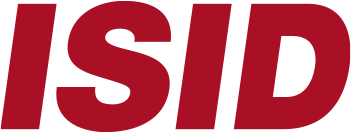In today’s rapidly advancing healthcare environment, the use of Medical Video Software has become increasingly prevalent. From documenting surgeries to capturing diagnostic imaging, these videos play a crucial role in patient care. However, as healthcare providers continue to adopt these technologies, ensuring the privacy and security of patient data captured in these videos has become a top priority. The need for robust data security measures within medical video recording software cannot be overstated, as breaches can have severe consequences for both patients and healthcare providers.
The Importance of Data Security in Medical Video
Patient confidentiality is a cornerstone of healthcare, protected by laws such as the Health Insurance Portability and Accountability Act (HIPAA) in the United States and the General Data Protection Regulation (GDPR) in Europe. Medical videos often contain sensitive information, such as identifiable patient details, medical histories, and the procedures being performed. If this data were to be compromised, it could lead to identity theft, discrimination, and a loss of trust in healthcare institutions.
Medical video software must incorporate stringent data security protocols to prevent unauthorized access, ensure data integrity, and protect against potential cyber threats. Encryption of video files, secure login credentials, and audit trails are essential features that help maintain the confidentiality and security of medical videos. By implementing these measures, healthcare providers can ensure that only authorized personnel have access to sensitive video content, thereby minimizing the risk of data breaches.
Safeguarding Patient Privacy
Beyond data security, protecting patient privacy involves ensuring that all video recordings are handled in a manner that respects patient dignity and autonomy. Consent must be obtained from patients before recording any medical procedures, and they should be informed about how their videos will be used, stored, and accessed.
The software should allow for the anonymization of videos where necessary, removing any identifying information that could be linked back to the patient.
Patient privacy is also upheld through strict access controls, ensuring that only those directly involved in the patient’s care can view their medical videos. Role-based access permissions, for instance, can limit the ability to view, edit, or share videos to specific healthcare professionals, further protecting the patient’s privacy.
The Role of VideoMed Health in Enhancing Data Security and Privacy
VideoMed Health, a cutting-edge Video Content Management system designed to address the unique challenges of managing medical video files in modern healthcare settings. VideoMed Health centralizes all medical videos from various devices and recording systems into one unified platform, ensuring seamless integration with the Hospital Information System (HIS).
One of the significant challenges in today’s healthcare facilities is the fragmentation of medical video files across different devices and departments. Imaging machines like ultrasounds, CAT scans, and MRIs often lack interoperability, making it difficult to access and manage these crucial video files. This is where VideoMed Health steps in, providing a solution that not only consolidates all medical videos but also integrates them directly into the HIS for easy future reference.

Key Features of VideoMed Health:
- Integration with Any Camera or Recording System: Whether videos are captured by surgical cameras, imaging devices, or other medical equipment, VideoMed Health ensures that all videos can be integrated seamlessly, regardless of the technology or vendor.
- Support of Any Video Format: VideoMed Health supports all video formats, eliminating compatibility issues and ensuring that every video can be accessed and reviewed without hassle.
- HIS/RIS Integration: The platform integrates effortlessly with any HIS or Radiology Information System (RIS), providing healthcare professionals with easy access to video content within their existing workflows.
- Incorporation into Patient Medical Records: VideoMed Health allows for the integration of video files into the patient’s medical record, ensuring that all relevant information is stored in one place for comprehensive patient care.
- Centralization and Easy Access: By centralizing all medical videos, VideoMed Health makes it easier for healthcare professionals to search, access, and manage these files, improving efficiency and reducing the risk of errors.
In few words
In an era where digital healthcare solutions are rapidly evolving, ensuring patient privacy and data security in medical video is more critical than ever. With the right software, healthcare providers can protect sensitive patient information while still benefiting from the enhanced capabilities that video technology offers. VideoMed Health represents a significant advancement in this field, providing a secure, centralized, and integrated solution for managing medical video files, ensuring that healthcare providers can deliver the best care while safeguarding patient privacy and data security.
